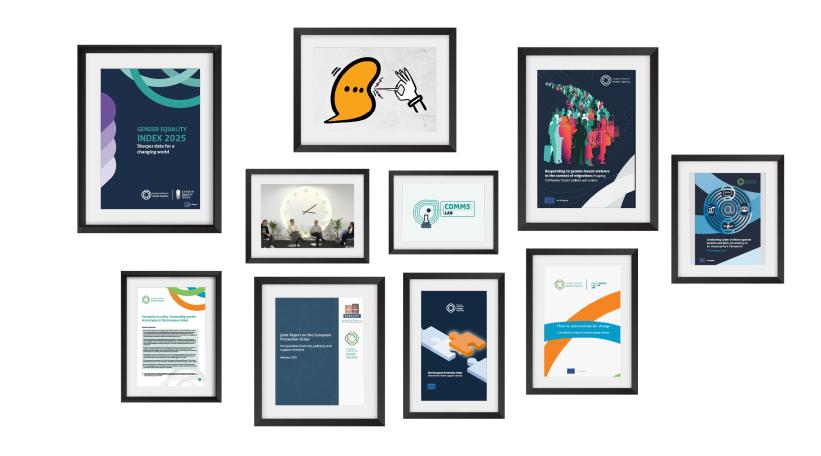
Migration is more than just a journey across borders; it's an enduring fight for safety, especially for women and girls facing the constant threat of gender-based violence.
EIGE’s latest policy brief ‘Addressing gender-based violence in migration: How to strengthen national action plans on Women, Peace and Security across the EU’ reveals a critical need for the EU to strengthen its response to gender-based violence affecting women and girls during migration.
“For too many women and girls, fleeing violence does not mean escaping it. On their migration journeys, they face the same threats they tried to leave behind — exploitation, abuse, and gender-based violence,” states Hadja Lahbib, Commissioner for Equality.
“We need a comprehensive approach that protects them at every stage of the journey: from the moment they flee, through borders and transit, to the communities where they seek safety. We must protect their rights, their dignity, and their futures.”
A Continuum of Violence
Migration is inherently a gendered process, impacting women and men differently. Women and girls are often forced to flee due to violence, only to face continued violence along migration routes.
More than a half of migrants arriving in Europe had experienced gender-based violence, the majority (69 %) of whom were women, according to research cited by EIGE.
Even after reaching EU countries, the risks persist within reception facilities, transit sites, and local communities. Fear of stigma, deportation, lack of legal status, and distrust of authorities often prevent victims from reporting abuse.
The Path Forward
Despite the EU's progress in combating gender-based violence through instruments like the Istanbul Convention and recent directives, current frameworks often fail to fully incorporate a gender perspective, leaving migrant women without adequate protection or support.
EIGE calls for the Women, Peace and Security (WPS) agenda to be more effectively implemented across EU Member States through strengthened National Action Plans (NAPs).
"When we strengthen our Women, Peace and Security frameworks, we not only fulfil our international commitments but also create practical solutions that can make a real difference in the lives of migrant women and girls,” stresses EIGE Director Carlien Scheele. "Their protection and empowerment must be central to our migration and security policies."
The analysis reviewed Women, Peace and Security national action plans (NAPs) from seven EU Member States: Belgium, Germany, Spain, France, Croatia, Malta, and Finland.
EIGE found that while these plans recognise the intersection between gender-based violence and displacement, they often lack sufficient resources and coordination mechanisms to be fully effective.




